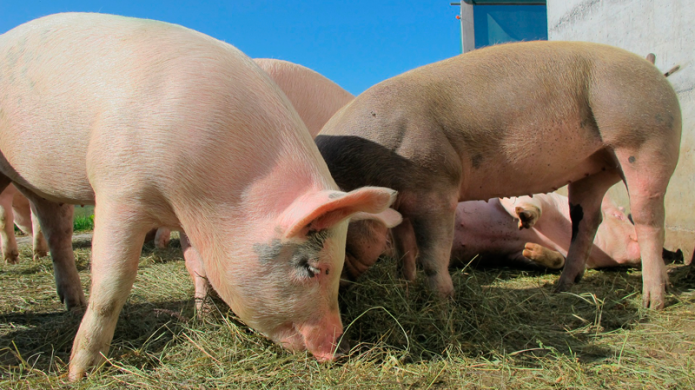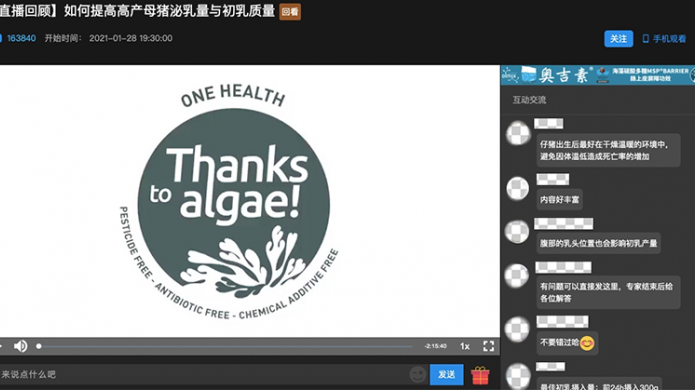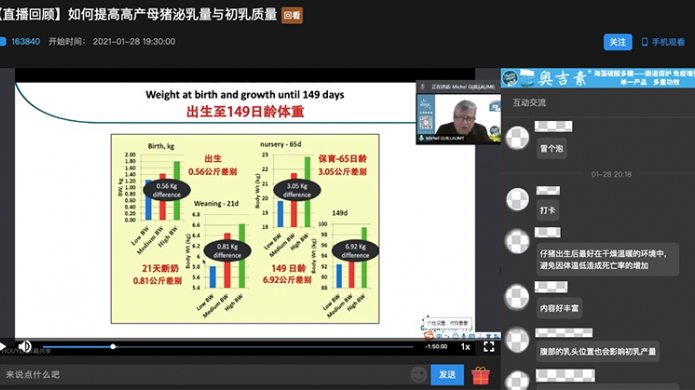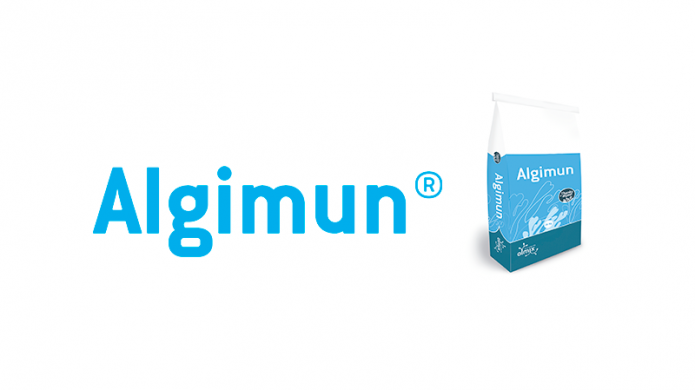For the last 30 years, the average litter size has substantially increased from 6 to 7 piglets to 13, 14 and even 17 to 18 piglets. This average litter growth is largely due to the introduction of hyper-prolific sow breeds into the commercial pig production. Selection towards large litters has resulted in lower average birth weight and more heterogeneous litters with more low weight birth piglets impacted by an intra-uterine growth retardation syndrome.
Birth weight play an essential role in piglets survival within the first 5 days. Selection towards hyper-prolificacy can lead to a high pre-weaning mortality. Large litters induce competition at the udder for an effective colostrum intake. Inadequate, insufficient colostrum intake has shown to be a major cause of pre-weaning mortality, retarded growth, higher sensitivity to diseases and a less effective feed utilization. Contrary to milk production, the production of colostrum has been well shown to be independent from the litter size and hence an adequate colostrum intake per piglet proves to be essential and critical in piglets born from high prolific sows.
Prolificacy vs hyper-prolificacy
- Prolificacy: a genetic trait and an ability for a sow to produce a number of offspring in adequacy with its number of udders and teats and its milking capacities.
- Hyper-prolificacy: a genetic trait characterizing the capacity of a sow to give birth to a number of piglets superior to its number of teats and udders.
Technical and economic analysis of hyper-prolificacy
Advantages
- Higher sows productivity per annum.
- Higher returns on investments.
- A potential higher profitability.
- Reduced volume of slurries to be disposed-off for a set number of finished pigs.
Drawbacks
- Potential low litter weight at birth.
- Potential low intake of colostrum.
- Potential low survival rate at birth.
- Potential impaired immunity.
- Potential impaired growth.

Pig farm.
“There are some potential challenges producers may have to face when it comes to hyper prolificacy strategies, especially related to the weight of animals. A light weight in piglets may have negative consequences such as lack of vigor, retarded growth, low survival rates, defective immunity and a low intake or late colostrum. This in particular is where we want top out the focus on since colostrum is the most fundamental food for piglets for survival at days, growth and health throughout life,” said Michel Guillaume, Olmix Technical Director, on a recent Olmix webinar hosted in China.
The importance of colostrum
Colostrum is the secretion produced by the mammary glands of the sow during first 24 hours after farrowing. Colostrum early intake is critical to the survival of neonate pigs born with very limited reserves of energy quickly depleted over the first 24 hours of life. Also, colostrum early intake is essential to the provision of epithelial growth factors and epithelial transforming factors that condition an optimal growth of the stomach and the intestine.
“Colostrum early intake is fundamental to the provision of maternal immuno-globulins for the establishment of the passive immunity. Piglets are born hypoglobulinemic due to the epitheliochorial nature of the sow’s placenta. During the first 24 to 36 hours of life, intact IgG can be taken up from the gut and transferred intact to the blood stream. The sole source of immunoglobulins in newborn piglets is colostrum,” Guillaume said.
Reinforcing the immunity of the piglets is the key
In the current context of hyper-prolific sows, light piglets and reduction of the use of antibiotics, there is a lot of interest in improving the immune status of young piglets through higher transfer of passive immunity.
The transfer of passive immunity from sow to piglet is crucial and constitutes the first line of protection of the newborn piglets. Recent research has pointed out the potential of in-feed marine macroalgal polysaccharides as a reliable agent for immune activation in sows through its impact on colostrum and milk composition and the transfer of immune molecules to piglets.
This has led Olmix to develop an in-feed product, Algimun®, which is based on the combination of two biologically active macroalgal extracts: MSP®IMMUNITY, a green algal extract that reinforces innate and adaptive immune responses; and MSP®BARRIER, a red algal extract, which enhances the barrier function of the intestinal mucosa.
Recent scientific results have shown that the addition of MSP®IMMUNITY to primiparous sows’ feed improved the transfer of immunity (through the colostrum and milk), which will provide the newborn piglets with protection against infections and reduce the use of antibiotics.
In addition, the benefits of Algimun® supplementation in sows feed was evaluated on the colostrum quality and on litter performance in a commercial trial conducted in France. Sows were divided into control group (without supplementation) and test group (supplemented with Algimun® at an inclusion rate of 1kg/ton of feed from 7 days before farrowing to weaning at 21 days). The number and body weight of piglets at birth was homogenized by sow and treatment. Piglets viability, growth performance and veterinary treatments needed per litter were recorded. Samples of colostrum were collected to analyze immunoglobulin G content. The results showed that the piglets from supplemented sows presented higher body weight at weaning when compared to piglets from control sows (+360g, P= 0.056) and better ADG (+18g/day, P<0.05). Besides, the litters from sows supplemented with Algimun® needed fewer veterinary treatments (-25%, P<0.01).
Sows supplemented with Algimun® presented better immune status (+25% of IgG levels in colostrum when compared to control animals) that favorably affected the technical results of their litters, generating a 10% higher net benefit (+7.75€/sow).
In short, Algimun®, a macroalgae based solution, can be used as a natural alternative in-feed strategy to support maternal immunity transfer sow to piglet.
More information




